第7章 ONE 1915-1917 MEGGIE 1(7)
The shadows wheeled and darted before the advancing light as Fee moved silently through the door leading into the front part of the house. Frank and Bob shared the first bedroom; she pushed its door open noiselessly and held the lamp high, its light flooding the double bed in the corner. Bob was lying on his back with his mouth sagging open, quivering and twitching like a dog; she crossed to the bed and rolled him over onto his right side before he could pass into a full-fledged nightmare, then stayed looking down at him for a moment. How like Paddy he was! Jack and Hughie were almost braided together in the next room. What dreadful scamps they were! Never out of mischief, but no malice in them. She tried vainly to separate them and restore some sort of order to their bedclothes, but the two curly red heads refused to be parted. Softly sighing, she gave up. How they managed to be refreshed after the kind of night they passed was beyond her, but they seemed to thrive on it. The room where Meggie and Stuart slept was a dingy and cheerless place for two small children; painted a stuffy brown and floored in brown linoleum, no-pictures on the walls. Just like the other bedrooms. Stuart had turned himself upside down and was quite invisible except for his little nightshirted bottom sticking out of the covers where his head ought to have been; Fee found his head touching his knees, and as usual marveled that he had not suffocated. She slid her hand gingerly across the sheet and stiffened. Wet again! Well, it would have to wait until the morning, when no doubt the pillow would be wet, too. He always did that, reversed himself and then wet once more. Well, one bed-wetter among five boys wasn't bad.
Meggie was curled into a little heap, with her thumb in her mouth and her rag-decorated hair all around her. The only girl. Fee cast her no more than a passing glance before leaving; there was no mystery to Meggie, she was female. Fee knew what her lot would be, and did not envy her or pity her. The boys were different; they were miracles, males alchemized out of her female body. It was hard not having help around the house, but it was worth it. Among his peers, Paddy's sons were the greatest character reference he possessed. Let a man breed sons and he was a real man. She closed the door to her own bedroom softly, and put the lamp down on a bureau. Her nimble fingers flew down the dozens of tiny buttons between the high collar and the hips of her dress, then peeled it away from her arms. She slipped the camisole off her arms also, and holding it very carefully against her chest, she wriggled into a long flannel nightgown. Only then, decently covered, did she divest herself of camisole, drawers and loosely laced stays. Down came the tightly knotted golden hair, all its pins put into a paua shell on the bureau. But even this, beautiful as it was, thick and shining and very straight, was not permitted freedom; Fee got her elbows up over her head and her hands behind her neck, and began to braid it swiftly. She turned then toward the bed, her breathing unconsciously suspended; but Paddy was asleep, so she heaved a gusty sigh of relief. Not that it wasn't nice when Paddy was in the mood, for he was a shy, tender, considerate lover. But until Meggie was two or three years older it would be very hard to have more babies.
When the Clearys went to church on Sundays, Meggie had to stay home with one of the older boys, longing for the day when she, too, would be old enough to go. Padraic Cleary held that small children had no place in any house save their own, and his rule held even for a house of worship. When Meggie commenced school and could be trusted to sit still, she could come to church. Not before. So every Sunday morning she stood by the gorse bush at the front gate, desolate, while the family piled into the old shandrydan and the brother delegated to mind her tried to pretend it was a great treat escaping Mass. The only Cleary who relished separation from the rest was Frank. Paddy's religion was an intrinsic part of his life. When he had married Fee it had been with grudging Catholic approval, for Fee was a member of the Church of England; though she abandoned her faith for Paddy, she refused to adopt his in its stead. Difficult to say why, except that the Armstrongs were old pioneering stock of impeccable Church of England extraction, where Paddy was a penniless immigrant from the wrong side of the Pale. There had been Armstrongs in New Zealand long before the first "official" settlers arrived, and that was a passport to colonial aristocracy. From the Armstrong point of view, Fee could only be said to have contracted a shocking mesalliance.